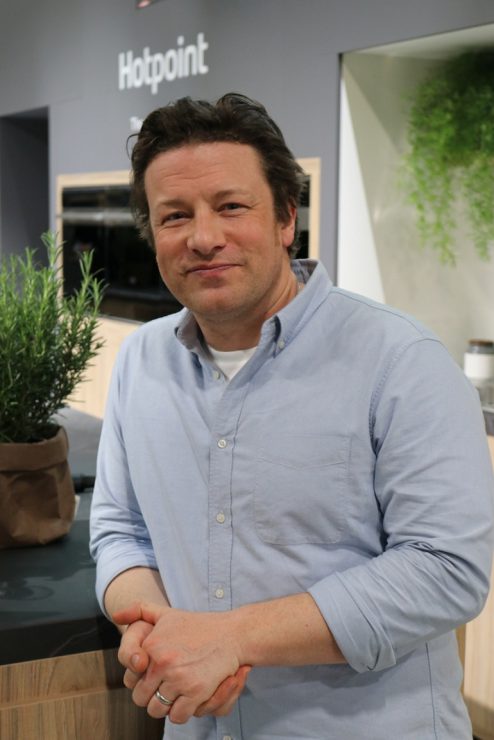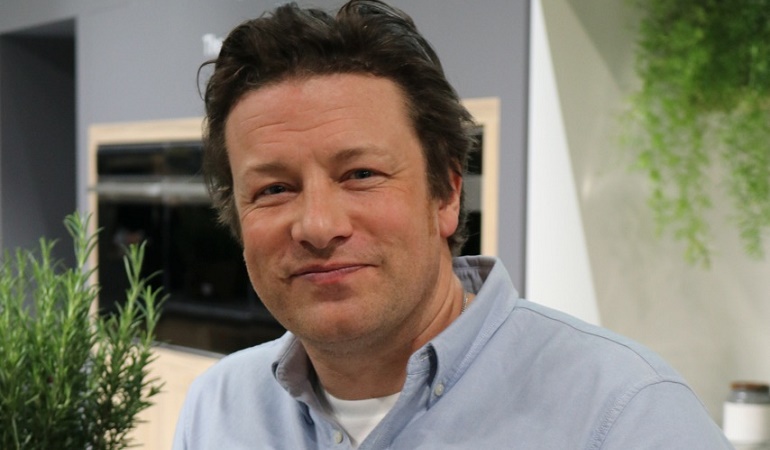Why it is part of moving forward.
Jamie Oliver made a public appearance on Tuesday in Milan just days after the sudden closure of his Jamie’s Italian restaurant in Canberra while five other restaurants went into administration and were sold to a Brisbane company.
In an interview, which provided an insight into his philosophical view on business and life as well as food and technological change, Oliver shared his thoughts about failure and success as well as revealing that failing to be relevant is one the reasons why his restaurants close.
“If you love what you do – failure is a part of moving forward,” Oliver said during a media conference representing the Hotpoint appliance brand at the EuroCucina exhibition in Milan attended by Appliance Retailer.
“I have closed many things, not just a few restaurants, many many things – cookery schools – but I still have one today. I have closed businesses where we design products, but I still design product today – the point is what do people want, and what do they need, what do they want help with? I can think I know – but I don’t know, I try.
“Knowing is one thing, and trying is another and sometimes you never find out until you do it, so for me the reality is – I do what I love because I love it and success cannot exist without failure and people are too strange about failure and particularly newspapers and journalists are really fascinated by it when their own industry is changing at such a speed – where they don’t even know who their boss is going to be in a year’s time – so we are all in it together, so it is really about relevance.

Jamie Oliver representing appliance brand Hotpoint at the EuroCucina exhibition in Milan
“If I open a restaurant in Portugal and it is not relevant – it will close. If it is relevant – it will live. It is the same with anything – it is the same with product, it is the same with a plate, it is the same with a recipe. We just try to make it the best we can, and make it accessible and make it a joyful experience.”
Oliver also shared his perspective on parenting and the pressure that he experiences balancing personal and business priorities.
“I think the challenges for me as a Dad that is busy is exactly the same as most parents that are busy – modern day parents really struggle with balance and what good is and for me I need to protect the time I have with my kids – so holidays, the right school, occasions, the weekends – and this also changes the way I cook.
“It means I have to be clever with the ways I cook because I have to cook three times a day when I am at home, I really honestly think that the stresses that I have is normal for most parents – we are all juggling a thousand things and I think I am doing ok. I think with my first two children I was a little slow to readjust – with the other three I like to think I am pretty good. And now I have teenagers, so I am back again and I keep on trying.”
Oliver also shared his thoughts on food and the importance of cooking, which potentially may be under threat in the long term from the convenience of fast food.
“If you love the world and you love the planet, then the closer people are to food and the farm – the better. The further you take people away from food – the whole thing breaks down and it is a terrible place to live. I am very romantic about the concept of farming and food and at the same time, change has always happened and it has always been dramatic – going from wood to gas, from gas to electric, from electric to induction – from no light at night, to having light at night. The concept of change has always required people that love things to keep changing, so for me personally the way that people learned to cook was from their mum and grandmother at home and women didn’t go to work.
“Now women go to work, so we have changed. We need to keep being contemporary. If I am on a book, or a magazine, or a TV screen – I can never be as good as [someone in your family]. I know one thing, and I am not being dramatic – you have to fight to keep food and cooking alive because don’t forget the biggest industry on the planet is food and the biggest employer on the planet is farming, so we have to fight to keep people cooking because of the convenience of junk food and the weapons of sugar, salt and fat.”

